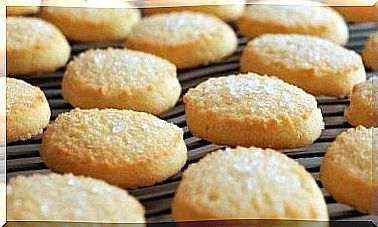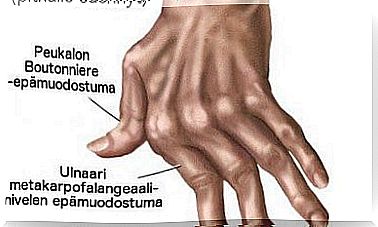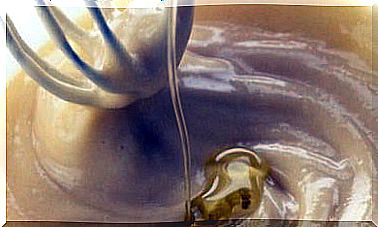Child’s Nocturnal Cough: 7 Natural Treatments
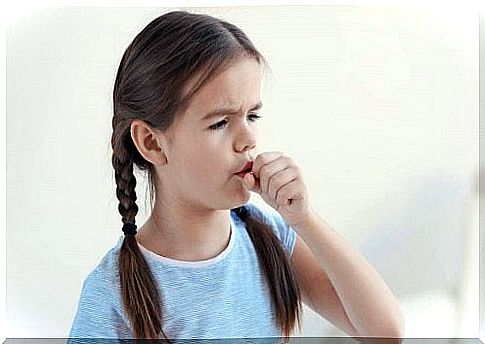
A child’s nocturnal cough is a very common ailment. The child may not cough at all during the day, but when the evening comes he begins to be tormented by a persistent cough that makes it difficult to fall asleep and may even make you vomit. This worries parents greatly.
Cough is a physiological reflex and an involuntary reaction of the body. With this strong release of air, the body tries to remove mucus, dust and other particles from the airways.
A perfectly healthy school-age child with no underlying respiratory infections can cough up to 34 times a day. Still, coughing is one of the most common reasons to take a child to the doctor, although it usually does not require medical attention.
Why did we cough?
Cough receptors are located in the airways from the pharynx to the bronchi. They are irritated by the following factors:
- Upper respiratory tract infections including runny nose, nasopharyngitis, laryngitis and flu.
- Bronchial hyperreactivity.
- Asthma and allergies.
- Esophageal reflux disease (GERD).
Many children can cough a few times a day, but in the evening in bed the cough doesn’t stop. This is because during the day the child stands and moves, which means that the mucus also moves more and there is less coughing. But when the child goes to bed, the airways become more blocked because the mucus stays more in place. Congestion and supine position dry out the mucus and airways more, which is why the cough does not end.
Child’s nocturnal cough: natural treatments
A child’s nocturnal cough can cause a lot of anxiety if it lasts a long time, and in that case it can be a sign of a more serious health problem. It adversely affects sleep and daytime activities, as well as the quality of life of the child and his or her parents.
A nocturnal cough can usually be treated at home with the following recommendations.
1. Avoid too dry an environment
The air in the children’s bedroom should be moist. Humidifiers are very helpful, but they should be cleaned thoroughly first. If you use heating, make sure the temperature is not too high and place a container filled with water above the radiator to humidify the air.
2. Thin the mucus
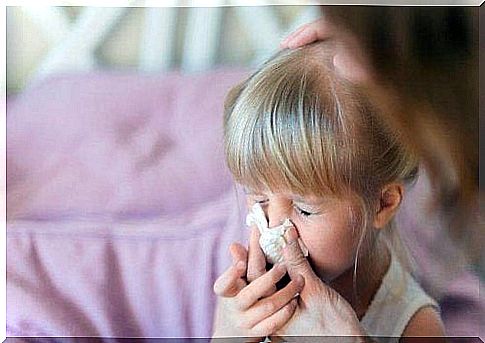
To dilute and remove mucus, it is important for the child to drink enough fluids. In addition to water, you can give him coconut water or fruit juices.
3. Try to get the child to sleep in a semi-sitting position
Since your child’s nocturnal cough often gets worse when lying down, try to get him or her to sleep in a semi-sitting position. Raise the headboard slightly or put pillows on the top and back.
4. Facilitate nasal breathing
If the mucus is thick, try saline solutions as sprays or drops. They are uncomfortable for children, but they work very well.
You can also rub the baby’s breast (as long as the child is over 2 years old) with a mixture of essential oils:
Ingredients
- 2 drops of essential eucalyptus oil
- 10 drops of olibanine essential oil
- 100 ml of sweet almond oil
Do this
- Mix all the oils well in a container.
- Apply a small amount of the oil mixture to your hands and rub the baby’s chest to relieve the blockage.
5. Lighten the dry throat
Honey has been found to relieve dry throat. You can give your child a teaspoon of honey before bedtime or when the cough starts. It can also be diluted in warm milk.
A child’s nocturnal cough is also relieved with onions. Chop the yellow or red onion into small pieces and pour over the honey. Let it be for a moment. You can give this “syrup” to your child daily.
6. Onion: good old trick for coughing
A very effective way to relieve a child’s nocturnal cough is to put chopped onions next to his bed. This old gimmick works because the onion is high in polyphenols, natural antihistamines that relieve allergy symptoms and reduce airway inflammation.
If you add a little sugar to the onion, its scent fills the entire room and the child’s cough stops.
7. Avoid self-medication
In general, a child’s nocturnal cough does not require any medication. If in doubt, consult your pediatrician.
Over-the-counter medications should not be used in children under two years of age. They contain codeine, dextromethorphan or cloperastine, which can have harmful side effects.
Finally
It is very common for a child to start coughing as a result of respiratory infections when starting kindergarten or preschool. Doctors say a cough is considered chronic if it continues for more than four weeks.
If the child also has difficulty breathing and sleeping, take the child to a doctor. It is also important to remove air pollutants and respiratory irritants from the home, such as tobacco smoke and cleaning chemicals.


